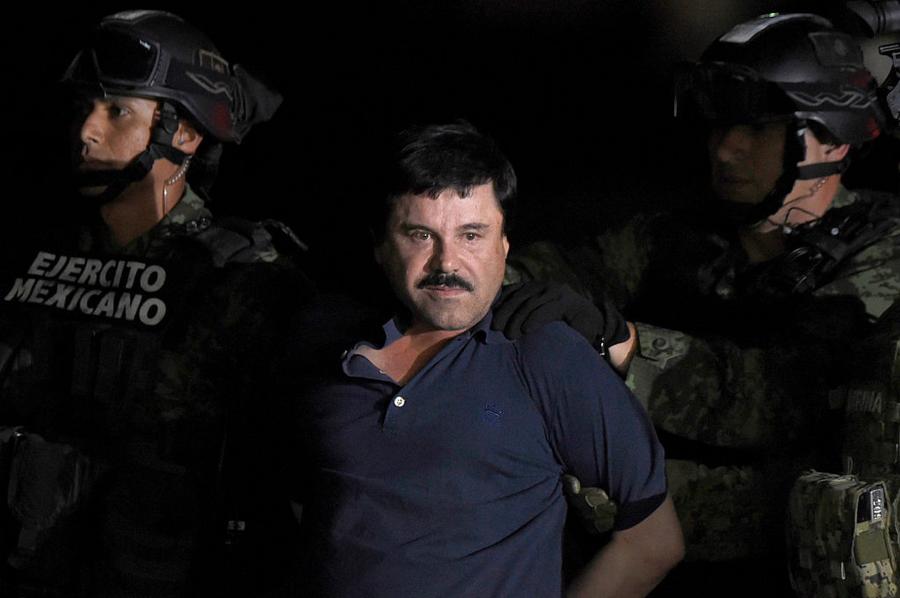Earlier in February, Joaquin "El Chapo" Guzman was convicted on all ten criminal counts he faced in court, including charges of money laundering and drug trafficking. That might look like a victory for US prosecutors. They say that now some work that is arguably almost as important begins: Attempting to confiscate some or all of some $14 billion in drug money from El Chapo's coffers.
That attempt has been in writing going back to 2016, when the US indictment against El Chapo announced that if he was convicted of just the first count of running a continuing criminal enterprise, it would attempt to seize money and/or property that was either gotten from that enterprise or somehow used in its operation. In that indictment, the amount of money involved is described as "including but not limited to at least approximately…$14 billion."

ALFREDO ESTRELLA/AFP/Getty Images
Former assistant US attorney Duncan Levin specialized in asset forfeiture and money laundering, and he recently told Business Insider that "the cumulative amount of money based on his drug-trafficking enterprise, but [US prosecutors] never really spelled out what the $14 billion comes from." He went on:
"The US government is going to seek a forfeiture judgment against him in the amount of money that they estimate is the proceeds of his offense…Whether he's worth it or not, whether he can pay for it or not, is almost immaterial."
Levin also explains that the $14 billion figure is merely an estimate by the government, and often such estimates don't take into account things like operating expenses – of which there are plenty in the case of an organization as large as the Sinaloa Cartel. Then there's the practice of investing profits in all kinds of legitimate businesses, including farms, malls, shopping centers, sports teams, and even churches and charities. And if the US is going to seize any of it, it will require cooperation between both the US government and Mexico.
/2017/05/GettyImages-621793032.jpg)
/2018/11/GettyImages-52242812-1-e1541703554359.jpg)
/2009/12/El-Chapo-Guzman.jpg)
/2016/05/chapo.jpg)
/2016/03/celthcoxeaaz837.jpg)
/2017/07/GettyImages-480490174.jpg)
/2022/06/paul-.jpg)
/2015/08/Fiona-Bruce.jpg)
/2012/08/Linda-Hogan-1.jpg)
:strip_exif()/2020/06/taylor.png)
/2012/10/Nick-Hogan.jpg)
/2010/12/Brooke-Hogan-1.jpg)
/2010/12/Antoine-Walker.jpg)
/2022/11/burt.png)
/2020/07/brian-austin-green.jpg)
/2011/05/Mary-Hart.jpg)
/2020/02/Jaclyn-Smith.jpg)
/2020/12/selena.jpg)
/2010/11/Joan-Baez.jpg)
/2016/02/GettyImages-502028086.jpg)
/2010/01/Judd-Apatow.jpg)
/2021/01/Richard-Marx.jpg)
/2015/03/GettyImages-908573706.jpg)